10 Easy ways to Reduce stress
SOLUTION FOR STRESS AND ANXIETY…..
Being stressful is a natural outcome of such unconscious living. One gets stressful as one don’t really knows how to handle mind. Stress is how the brain and body respond to any demand. Any type of challenge – such as performance at work or school , a significant life change or a traumatic event – can be stressful. Chronic stress can affect your health. It is important to pay attention to how you deal with minor and major stress .
Easy and successful Ways To Reduce Stress . The following are some wonderful ways to reduce anxiety, agitation and stress and promote relaxation, calm and peace within yourself. Some techniques take practice, and most require some commitment on your part to achieve results. However, the results are well worth any effort, as a calm and relaxed body and mind are less prone to health issues than an agitated body and mind.
BREATHING STRONGLY….
Breathing strongly influences mind, body and moods. By simply focusing your attention on your breathing, and without doing anything to change it, you move in the direction of relaxation. There are many worse places to have your attention – on your thoughts, for one, since thoughts are the source of much of our anxiety, guilt and unhappiness. Get in the habit of shifting your awareness to your breath whenever you find yourself dwelling on upsetting thoughts. Try these breathing exercises.
PROGRESSIVE RELAXATION..
Progressive relaxation is a way of releasing tension in muscles. Often taught in yoga and exercise classes, on self-help tapes and by various instructors – from massage therapists to psychologists – there are many variations of progressive relaxation. A common technique is the following:Lie on your back in a comfortable position.Take a series of deep slow breaths and focus your awareness on different parts of the body in turn, becoming aware of any muscular tension and releasing it. One way to do this is to first tense a muscle deliberately and then relax it. Start with the front of the body, tensing and relaxing the muscles of the upper face, then moving on to the jaw, neck, chest, front of the arms, abdomen, thighs, lower legs, feet and toes. Then, do the same down the back of the body.Finally, lie still with the eyes closed, concentrating on your breath and enjoying the feeling of peace and freedom from tension.You can easily learn to do this on your own, but it is pleasant to follow spoken instructions from someone with a soothing voice. You can incorporate progressive relaxation into your daily routine and find ways to make it more portable. For instance, you can modify it for a sitting position and do it at your place of work.
EXERCISE….
For many people, exercise is their main method of reducing stress and promoting relaxation. One of the benefits of regular aerobic exercise is its moderating effect on emotions. This is a long-term benefit, but aerobic and nonaerobic exercise can also work in acute situations as a symptomatic treatment. If you feel angry or upset, a brisk walk or run or a half hour of lifting weights will often put you back in a good mood. While exercise is a great way to burn up excess energy, it does not teach you how to process stress differently. For that reason it is not recommended as your sole method of relaxation, but as a complement to another technique, such as breathing, visualization or yoga, for instance. Yoga is an excellent promoter of relaxation as well as a good form of nonaerobic body conditioning. It perfectly complements aerobic exercise. It requires commitment to a formal practice and is best done with an instructor, at least at the start.
MASSAGE AND BODY WORK…
Massage and body work. For a wonderful, relaxing experience, get a massage or other form of body work. In order to gain full benefit, you need to be totally passive and surrender to the touch of a skilled therapist. There is a great deal of evidence that the state of the mind and nervous system is reflected in the state of the musculature – body work is one route into the unconscious mind. Some kinds of massage are more relaxing than others. Some of the best for this purpose are Trager work, a system that uses rocking and bouncing movements to lull the recipient into a very dreamy altered state, and watsu, done in warm water. Like exercise, massage is more a symptomatic treatment than a lasting change. It is also limited in its application, since few of us are able to go to a massage therapist on a daily basis, and most of us need to practice relaxation skills every day.
PROPER SLEEP. ….
Sleep is a powerful stress reducer. Following a regular sleep routine calms and restores the body , improves concentration, regulates mood, sharpens judgementand decisionmaking. Lack of sleep , on the other hand , reduces your energy, and dimnishes mental clearity. You must have probably noticed , how refreshed you feel after a good nights sleep. You feel stronger and ready to tackle the stress that came within the day. Sleep is a restorvative process that’s important for brain health.
LISTENING TO MUSIC…..
The soothing power of music is well established. It has a unique link to our emotions , so can be an extremely effective stress management tool. As music can absorb our attention, it acts as a distraction at the same time , it helps to explore emotions. This means it can be a great aid to meditation. Helping to prevent the mind wandering. Music provides a wonderful backdrop for your life and you can find increased enjoyment from what you are doing while reducing stress from your day.
MEDITATION. …
Meditation is directed concentration. Meditators learn to focus their awareness and direct it onto an object: the breath, a phrase or word repeated silently, a memorized inspirational passage, or an image in the mind’s eye. Researchers have documented immediate benefits in terms of lowered blood pressure, decreased heart and respiratory rate, increased blood flow, and other measurable signs of the relaxation response.While the potentials of meditation are vast, not everyone should practice it as a way to relax: many people are not ready to meditate. The first step is to work to improve the diet, develop good exercise habits, and learn how to breathe properly. Some people may benefit from simpler techniques for relaxation, ones that give immediate results with less effort.If you want to give meditation a try, shop around for a form of it that seems comfortable – one that suits you and does not conflict with your belief system. All forms of meditation require regular, daily practice over a long period of time before they deliver the big rewards. Try to meditate every day without fail, 20 to 30 minutes being a reasonable length of time.Many newcomers to meditation think the goal is to stop all thoughts. That is not possible. What you want to learn is to withdraw attention from the endless chains of associated thoughts that stream through the mind, putting attention instead on the object of meditation. Whenever you become aware that your attention has strayed (to images, sensations, thoughts of dinner, etc.) gently bring it back to your chosen object. The work that meditation requires is just this constant running after your attention and bringing it back.
MANTRAM…
Mantram is the practice of repeating over and over in the mind certain syllables, words or phrases that help unify consciousness and counteract negative mental states. Repetition of a verbal formula is a way of focusing the thinking mind and counteracting the damage done to both mind and body by thoughts that produce anxiety, agitation and unhappiness.Repetition of a mantram provides a comforting focus for the mind. It is a totally portable technique, requires no training or equipment, and can be used in any circumstance, so long as you don’t practice it during something that otherwise requires your undivided attention. Mantram is especially helpful for people with restless minds, whose turbulent thoughts keep them from relaxing, concentrating and falling asleep. Try experimenting with it.
HYPNOTHERAPY. ….
Hypnotherapy. Though hypnosis, or hypnotherapy, has fallen in and out of favor over the past few hundred years, it is currently accepted as a useful method of relaxation, pain control and management of habits like smoking and overeating. In fact, the use of trance and suggestion to affect the unconscious mind – and through it the regulatory systems of the body – has many more potential applications in the treatment of disease. However, few hypnotherapists are willing to tackle interesting physical ailments, and instead limit themselves to control of pain, stress and habits. Keep in mind that hypnotherapists do not put you into a trance – they just arrange circumstances to increase the likelihood of your shifting into a trance state, which is part of the normal repertory of human consciousness.If you are interested in hypnotherapy, first sound out a hypnotherapist to make sure he or she does not have fears of loss of control that will get in the way of successful therapy. Also, do not enter into this work unless you feel totally comfortable with the therapist, and understand that you will have to implement the program by committing to regular practice on your own.Hypnotherapy is a good choice for people who think they have no idea what it feels like to relax and for those with stress-related health problems. A few sessions of hypnotherapy can also teach you how to use visualization for self-improvement and can help you begin a meditation practice.
SPENDING TIME WITH FAMILY AND FRIENDS. …..
Having good time with family and friends relieves stress. You can spend time with family by planning weekend or normally playing board games or a walk with family can help in reducing stress. Keep visiting your friends and relatives. Spending time together, sharing chores, keeping communication channels open amd sitting down to an evening meal together several times a week and help to make your family life together less stressful and more enjoyable.

Hey ! I am Ananya here ( full time blogger ) . This is a multi Niche website all about health , shayari , travel places , lifestyle and technology . Join us by simply following us on social media and get updated every time we post something new .



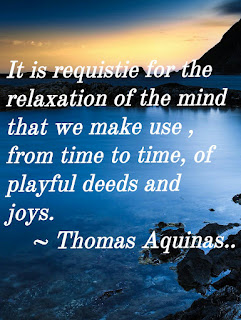
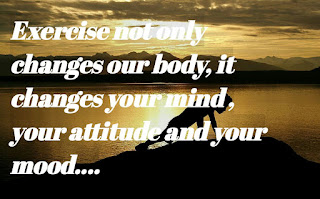
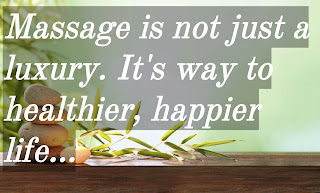


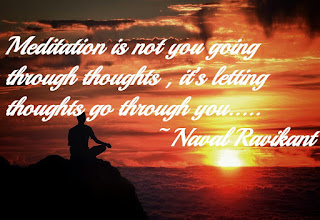

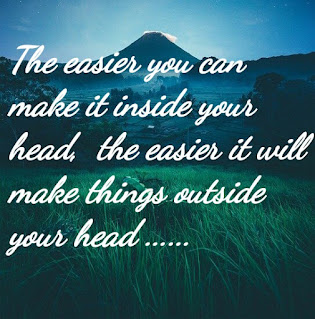


Leave a Reply